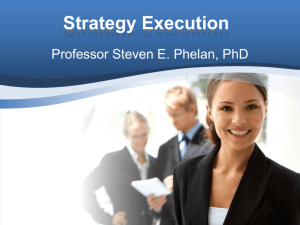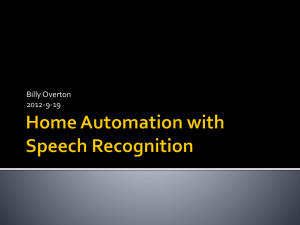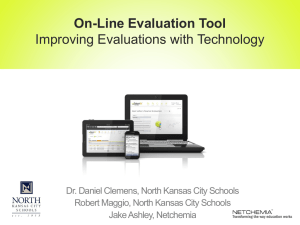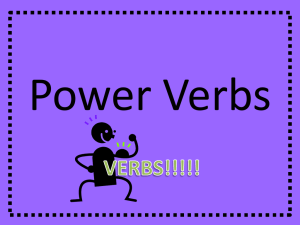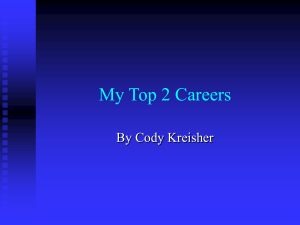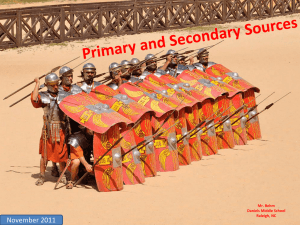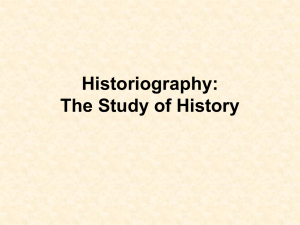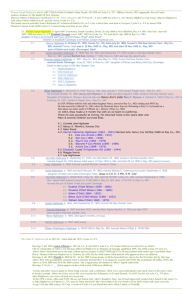change_mgt_6 - Management Class
advertisement
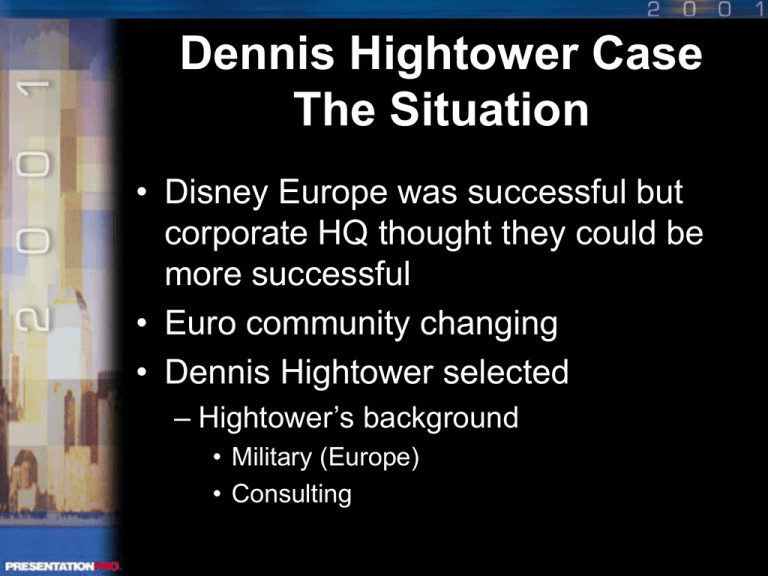
Dennis Hightower Case The Situation • Disney Europe was successful but corporate HQ thought they could be more successful • Euro community changing • Dennis Hightower selected – Hightower’s background • Military (Europe) • Consulting The Situation (contd.) • Disney wants to increase profitability of their European operation – Move to consolidate/unify country operations – Problem is to grow an already profitable business Burbank’s Perspective • Europe a “golden opportunity” • Good past performance but EEC opens new opportunities • European theme park will open doors for consumer items • Decision to create Paris HQ and hire a European head Country Manager’s Perspective • Proud of past success • New level of control unknown before • Possible perception of a “condemnation of previous performance” • Feeling “sandbagged” having opened up to Hightower when he interviewed them • Ostensible approval of Hightower’s selection by three Hightower’s Perspective • “I’m the boss they don’t want” • Burbank wants me but has high expectations • Somewhat embarrassed by having interviewed as a consultant & now coming as boss • “I’m stuck in the middle” Potential Barriers to Change • Stereotypes of Americans vs Europeans • Cultural differences • National differences • Personal status issues – Tenure – Relationship with the Disney family Hightower’s Task • Produce a strategic plan in 90 days • To do that he must: – Learn the territory – Obtain “buy-in” from the country managers – Develop and write the plan • While overcoming the barriers Three Approaches • • • • Just do it Collective approach with the CMs Individual approach with the CMs Combination Just Do It • Easiest and fastest • But least likely to produce “buy-in” and cooperation in implementation • And he’s got a lot to learn about the territory Collective Approach • Convene a meeting with all the CMs • Pros – Set tone & agenda at once with no rumors – All on “same page” & “one for all/all for one • Cons – Might become an “Us vs Him” situation – He lacks knowledge and is an outsider Individual Approach • Meet with each CM individually • Pros – Can question and learn – Can “pollinate” with his ideas – Forge personal connections • Cons – Time-consuming & keeps him away from HQ – Raises the issue of who/where to start Combination • Question of time • Could dilute the positives of either approach The Older CMs - Keep? • Temptation to eliminate the barriers & get young blood – A new broom sweeps clean • Situational approach called for – Never throw the baby out with the bath What he did • Non-stop tour of the territory spending 4/5 days with each CM by seniority – Learned the territory/built personal credibility • Developed his strategy – Including at least one or two of their ideas • Then held general meeting presenting their “jointly developed” strategy – Each CM saw himself as a Change Agent The Country Managers • Over the next year – replaced four CMs based on adaptability – 3 of the over 60 crowd remained – French Mgr delicately “elevated” to senior consultant role • In his first year, consumer products doubled bottom line Lessons • Perspectives - we all see through different eyes • Constant need to balance perspectives – Consider the feelings of all • One way to overcome resistance is to co-opt it – Make resisters into change agents Roles in Change • Jick - four roles to perform change – Sponsor - suggesting or demanding the change – Agent - the person actually ordering change & making it happen – Target - recipient of the change – Advocate - cheerleaders/promoters Roles in Change • Dalziel & Schoonover – Inventor - big picture modeler – Entrepreneur - identifies new possibilities – Integrator - forges alliances to gain acceptance – Expert - provides technical knowledge & skill – Manager - delegates and runs others – Sponsor - ensures support and resources The Sponsor’s Role • Too often adopt the “spinning top” approach • Effective sponsors remain involved – They initiate – They follow – They reinforce – Until agents become sponsors – And even the targets become sponsors The Change Agent • Ideally becomes a sponsor • Establishes close relationship with targets – dilemma of change that really hurts people • Must be a Trainer/Teacher • Great human sensitivity called for History of Change Agent Concept • Term first referred to external help – The “hired gun” • Has evolved to an internal function – Either integral to normal responsibilities – Or as a “project” – Change teams or change agent positions Pros & Cons • Pros – Internal agents know the territory & culture – Communication is usually easier/better – Trust is usually there • Cons – May be difficult to take the hard decisions – Time limits when you have a “regular job” too – “Prophet without honor” syndrome Cascading Change the Ideal • Begins with sponsor’s convincing & attractive vision which includes appropriate sense of urgency • Results in buy-in at all levels – The good and the bad are shared • Everyone sees themselves as change agents Northwest Airlines Case • Situation – Volatile environment of airline industry – Intense competition at multiple levels – Regulation/deregulation issues – Hugh capital investments and tight margins • Rothmeir takes over in ‘85 with Northwest is poor shape. Rothmeir’s Vision? • Better performance through – Better customer service – Increased efficiency & economic operation – Employee participation Dr. Ken Myers’ Role • Double team/ good cop-bad cop approach – Rothmeir to be Mr. Outside – Myers Mr. Inside • Is this approach likely to be effective? Pros and Cons • Pros – One makes the hard decisions – The other provides the soft shoulder • Cons – Mixing “oil and water”? – Trust? Environmental Changes • Acquisition of Republic – Impact? • The Crash at Detroit – Impact? • Bidding war over takeover by Al Checchi Lessons • Even change agents susceptible to change – Need to “bend their knees” • Pros and cons of internal vs external change agents • It takes more than one or two agents to effect change Microswitch Case • The situation – Microswitch attempting change to better quality and customer satisfaction – Three middle managers singled out as change agents – Transitional pace Problems of Transitional Change • Measured pace easier to cope with • No sense of urgency can be deleterious The Cast • Alvarez - new GM – Playing the “sponsor” role • Rick Rowe - former renegade/bad cowboy • Ellis Stewart - consummate trainer & optimist • Deb Massof - “outsider” from Honeywell, skeptical but enthusiastic Mid-Term Report Card? • • • • • What’s been achieved so far? Is this adequate? Has something gone wrong? How do the change agents feel? Threats to the change effort at this point? Change Agent’s Frustration • A sign of failure? • A normal part of being in the middle – Burnout and self-doubt possible – Constant questions of support & empowerment – Can appear an endless process when you’re in the middle • Article on “Converting Middle Powerlessness” Empowerment vs Control • Alvarez ultimately responsible to the corp. • But can’t get the job done without giving up some control to others • Delicate balancing act – Finding those you can trust – Giving them the power they need – Using the vision as control Lessons • The problem of being in the “middle” • Need for delicately balanced empowerment • Relationship between sponsors and agents • The ups and downs of all change efforts

